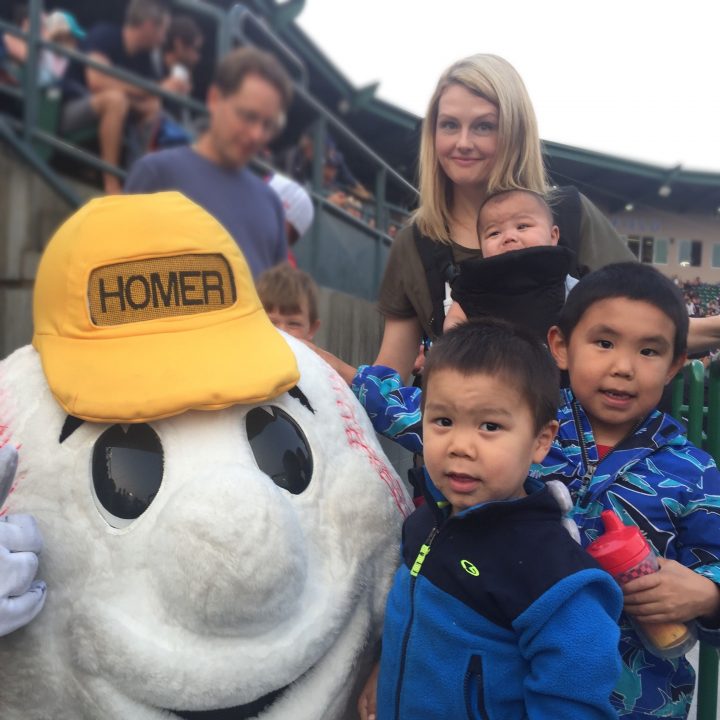“Where did you get a Chinese boy? Aren’t you worried his mom drank or did drugs while pregnant? You have a white saviour complex.”

Jennifer Sheckter says she is subjected to these kinds of discriminatory comments everywhere — from the supermarket to the toy store.
Sometimes strangers make an explicitly racist comment about her three indigenous sons; other times it’s more subtle.
“When they walked into a store they would be regarded with suspicion,” Sheckter said. “But if I was with them, then suddenly the service personnel would come over and help. We talk about being a colourblind society and it simply isn’t true.”
READ MORE: Raising an ally: How to talk to your child about the death of George Floyd, anti-Black racism
Sheckter, who is white, adopted eight-year-old Jack, six-year-old Levi and three-year-old Rory from birth in Nunavut.
She says the boys are asked regularly who their “real mother” is.
“When Jack was in kindergarten in a different public school he had a student that would say to him, ‘Your mom is not your real mom. You don’t know who your real mom is; she is going to take you.'”
According to Kira Banks, educator and founder of Raising Equity, research shows children as young as preschool absorb ideas about race and racism, which makes discussing these topics imperative at a young age.

Get breaking National news
“Parents of kids of colour know we have to talk to our kids about it,” said Banks, who herself is Black. “We have to prepare them for ways in which they might bump up against racism.”
“I think one of the mistakes white parents make is that they fall back and they don’t engage in the conversation. They leave it to school or to society and we have to remember that our kids are making meaning constantly so we need to be engaged.”

In conversations with children, Banks encourages parents to distinguish between race — as something that we see and value — and racism, which is a system of unfair treatment created on the basis of race.
“I think it’s important for parents not to shy away from seeing skin colour and talking about racial differences because it is a thing, and then racism has made it negative in the sense that we have disparities by race and it’s important to make that distinction.”
Banks says parents should also be cognizant of who and what their children are exposed to. For example, do their children have relationships with friends, family members or neighbours from visible minorities? Are they enriched with books, TV shows, and movies that portray characters from visible minorities?
“You don’t want all the stories of Black people to be about struggle and enslavement,” Banks says. “Given how much negative, deficit, ‘less-than’ narrative there is about Black folks, it’s important that you counter that with those stories that are just everyday people, but also exceptional people, because you want to show that there isn’t a negative, narrow narrative.”
Banks says parents won’t be able to cover off the complexities of racism in a single sit-down; it requires continuous conversations and lifelong lessons.
Sheckter believes as they grow up, her boys will continue to experience racism.
While she won’t always be there to shield her sons from it, she is grounding them by raising them with love, connecting them with their culture, and reminding them that they have no obligation to share how their family came to be.







Comments